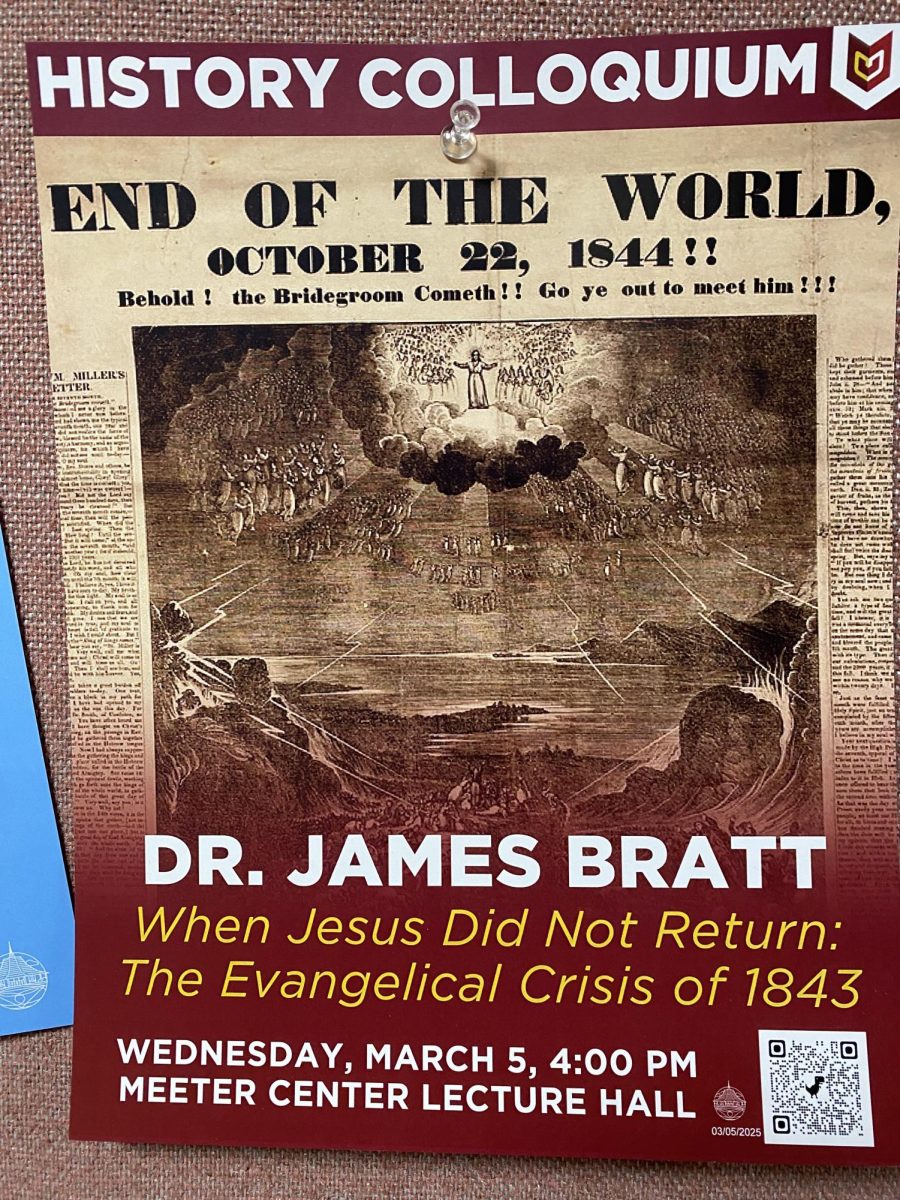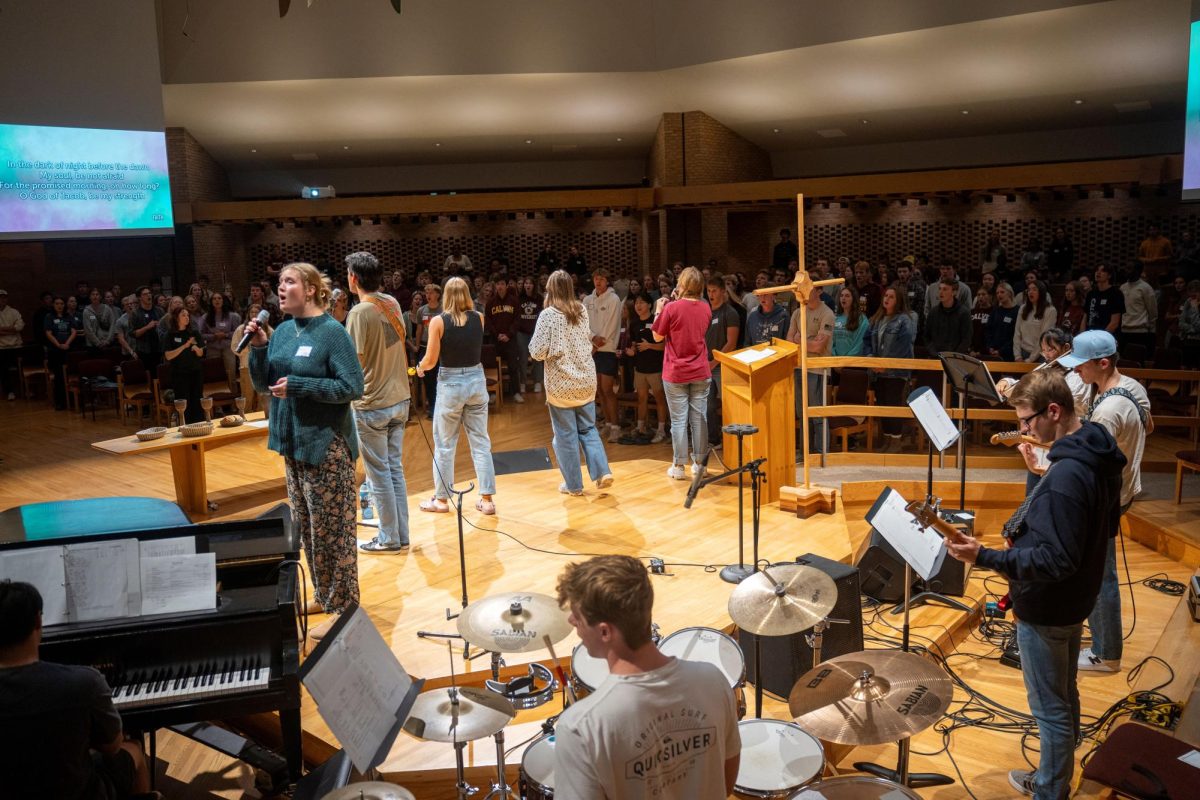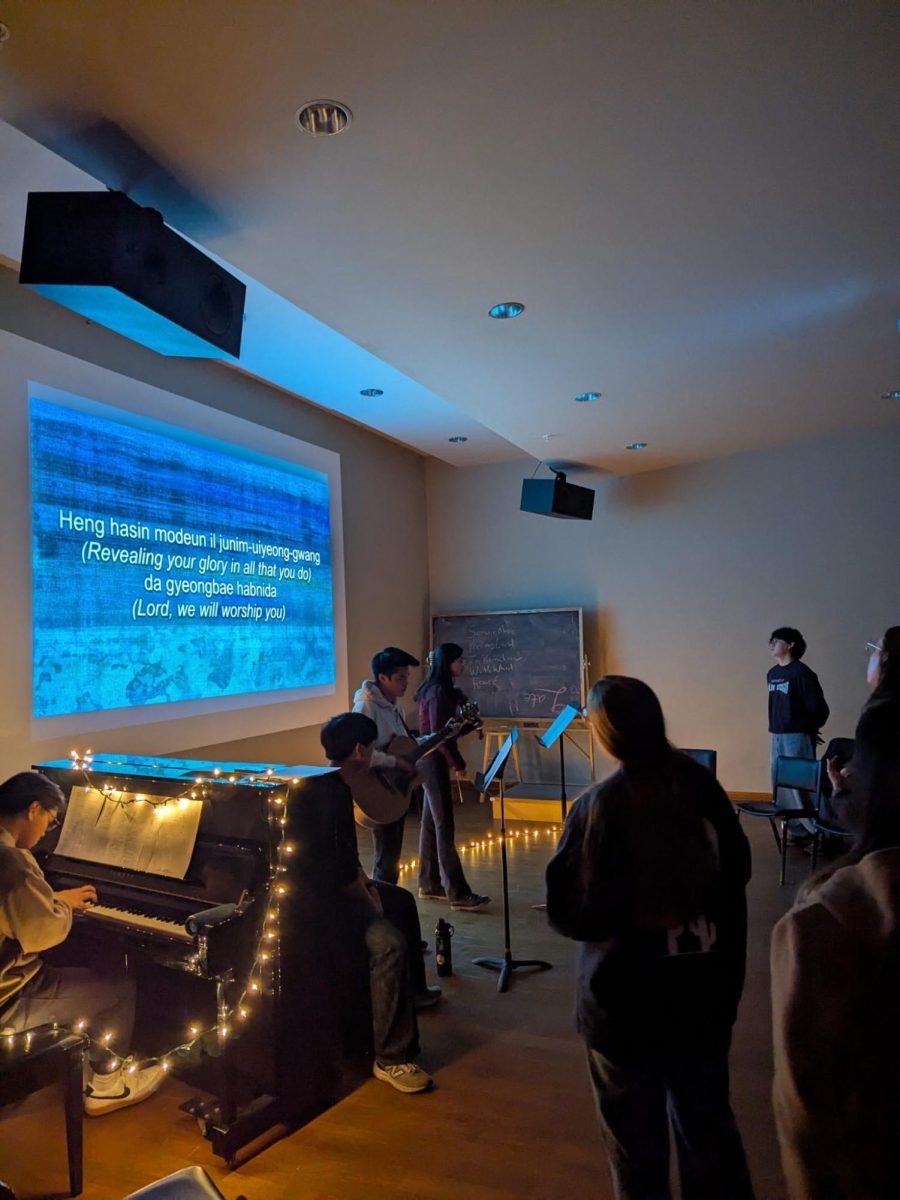Grand Rapids Buddhist Temple and Zen Center has been richly serving Grand Rapids since its founding three years ago. It has been involved with the Grand Rapids community while enduring misconceptions about the Buddhist religion by participating in interfaith organizations, visiting colleges and volunteering at Gilda’s Club and Kids Food Basket.
The guiding teacher of the temple, Deok Wun Sunim, identifies the two common misconceptions that the members of the Buddhist temple have to contend with.
“I think the primary one is that we are anti-God, and that is just not true,” Sunim said.
The second misconception from his perspective is that “we are portrayed as very passive, peaceful, kind and detached, when we are human beings prone to the failures of man.”
As an example of a negative misconception from the community, Deok Wun Sunim described when, a couple months ago, a woman came into the temple and thought that some relics that were on display were part of ArtPrize. Once the woman realized the origin and purpose of the relics she ran out of the temple with her hands covering her ears.
In response to such misconceptions about their religion, members of the temple have taken a proactive approach to engaging their community. They have been active in both Kids Food Basket and Gilda’s Club as well as a number of interfaith organizations. As part of their effort to combat misconceptions, members of the temple have been particularly involved in the academic community of Grand Rapids. Visits and discussions have occurred at Kuyper College, Grand Rapids Community College and ethics and communication groups at Calvin College.
Deok Wun Sunim is also pleased with the connections between the temple and some of the other religions present in the Grand Rapids community.
“Depends on who we’re talking about” Deok Wun Sunim remarks, “[but] we have warm relations with the Islamic community and Protestant community, and in the past we have had pulpit exchanges where a pastor of a local church would visit the temple and some of our members would visit the church.”
To deepen the connection with other religious groups, Deok Wun Sunim tries to focus on common ground:
“We focus on common ground and set aside the things we’ll never agree about, which frees us to talk about the things that we do agree on.”
This approach is based on the core tenet of support, which is prominent in the Buddhist tradition. According to Deok Wun Sunim, “Our religion is focused on not trying to change people but support them in whatever their beliefs are.”
When asked where he saw the future of the Buddhist religion in the Grand Rapids community
Deok Wun Sunim expressed confidence that “If the rate of growth is an indication, in 100 years, there will be a very strong presence in Grand Rapids.” Deok Wun Sunim’s prediction is based off the current impressive growth rate. He asserts that the Grand Rapids Zen Center and Buddhist Temple is “one of the fastest growing temples in the U.S.”
None of the newcomers to the temple were brought up in the Buddhist tradition.
“The bulk of the [new] people, probably half, are aged 25-45,” Deok Wun Sunim said. “60 percent are ex-Catholic and Christian Reformed, but there isn’t anyone who was brought up in the [Buddhist] tradition.” Deok Wun Sunim believes that the reason for the bulk of the members being converts is that “people are looking for an alternative … looking for a spiritual connection.”
Although its numbers are growing annually, the temple has had a hard time attracting minorities. Deok Wun Sunim speculates that this is because Christianity is more deeply embedded within the Hispanic and African American communities.
The temple endured an even more substantial setback when, on Aug. 16, a car crashed into the front of the temple. It has been closed since that event and will reopen Nov. 2, according to its website.







